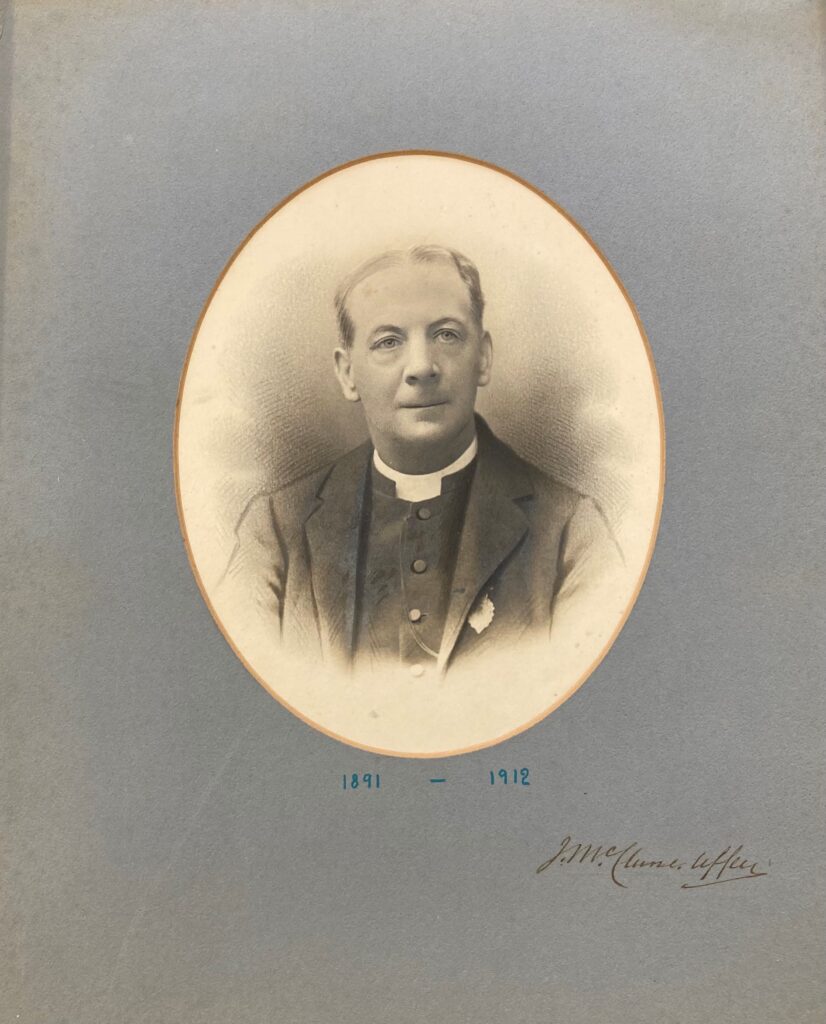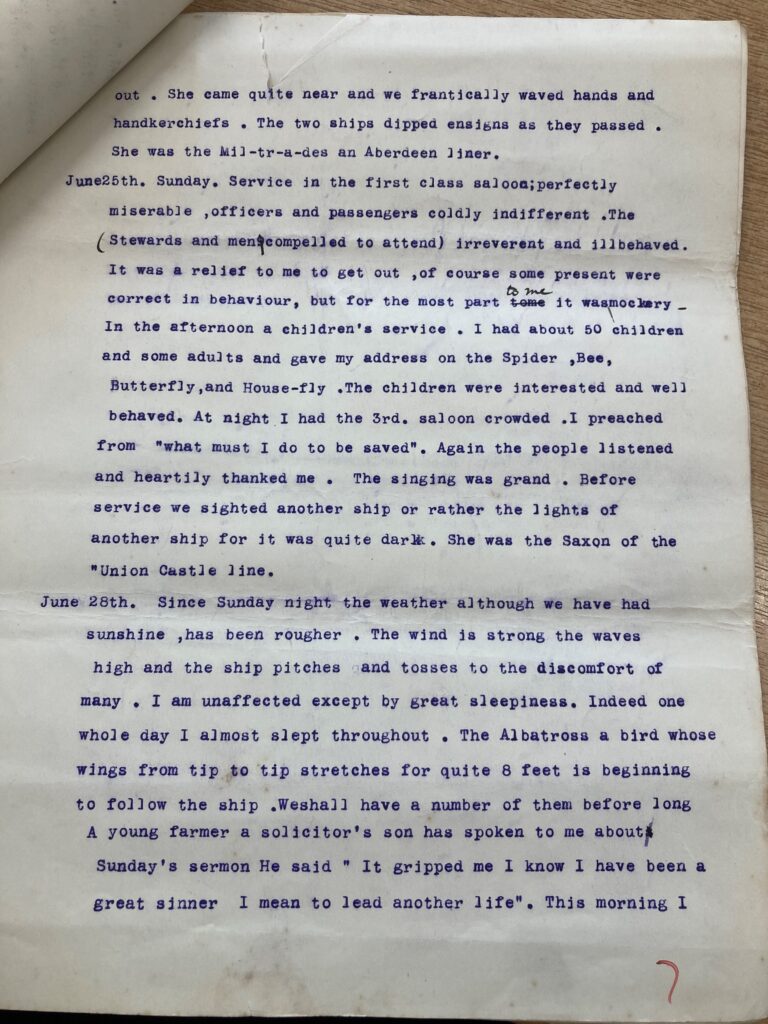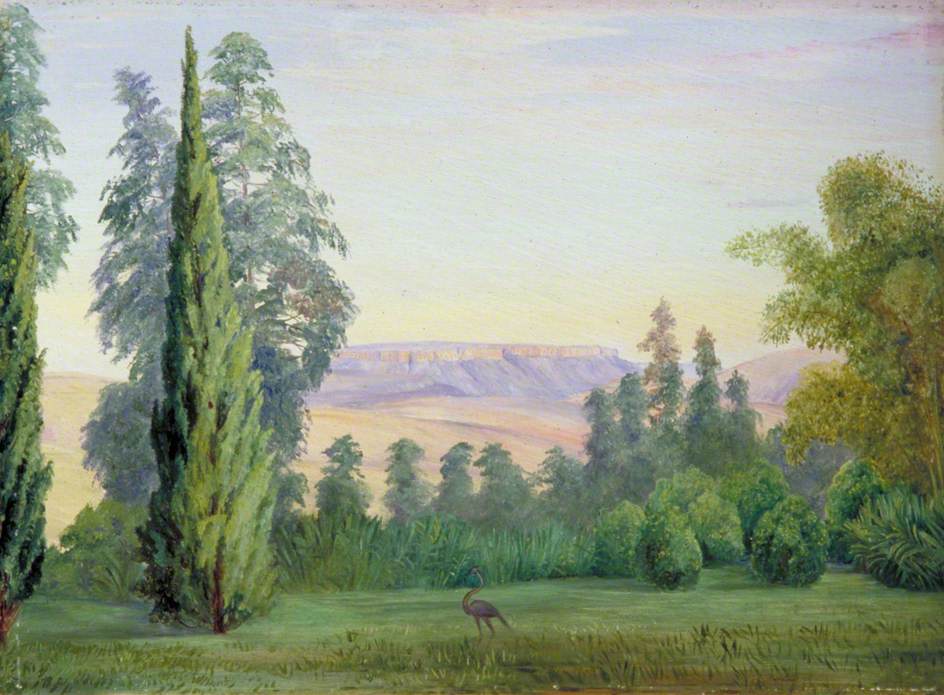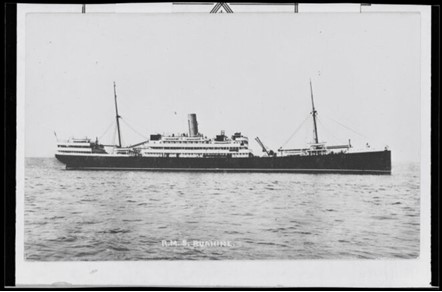This is the third instalment in our blog series about the non-conformist reverend James McClune Uffen and the diary he kept of his Journey from Dorchester to New Zealand in 1911. You can read part 1 and part 2 if you’ve not seen them already!
In this instalment we shall find out about ship sightings, the ever-changing weather, a visit to Cape Town, and James’ growing annoyance with other passengers (especially first class).

—
Our last blog ended with an entry from the 22nd June 1911, and the passengers of the Ruahine crossing into the Southern Hemisphere. This blog picks up a few days later on the 24th June. James writes how they finally spotted another ship for the first time in nine days, which he records as an Aberdeen liner called ‘Mil-tr-a-des’. The passengers were excited by the sighting and crowded on the deck to wave their hands and handkerchiefs.

On Sunday 25th June, James took three services. The first being in the first-class saloon which he describes as
‘perfectly miserable (Stewards and men compelled to attend) irreverent and ill behaved. It was a relief to me to get out, of course some present were correct in behaviour, but for the most part to me it was mockery’
The next service he took was in the afternoon and was for the children on board. About 50 children and some adults attended, they were a more attentive audience than the first-class passengers and were interested and well behaved.
His last service of the day was in the evening in the 3rd saloon,
‘Again the people listened and heartily thanked me. The singing was grand.’
Cape Town

‘we saw Table Mountain clear and grim standing out and up as a giant sentinel silently sternly guarding Cape Town, the busy city lying below.’
Steam launches took them to shore, and James and his friends walked from the landing stage into the city. He documents how he was initially unimpressed by the city and describes it as ‘ugly’. However, he quickly changed his mind when they arrived at the main street, where the
‘shops were of a high class character and the people well dressed and walked with the easy confidence of men and women free from conventionality’.
James and his friends visited the Parliament house, and Anglican Cathedral and the Botanic gardens.
This day’s entry ends with Reverend Uffen expressing his annoyance at the behaviour of his fellow passengers when returning to the ship. There were two particular incidents that he mentions. Firstly, a launch brought back a number of drunken third-class passengers, one of which was so violent when getting on board that he had to be placed in irons. Secondly, he records how ‘a first class passenger (not a first class man)’ delayed the ship. He was brought out in a launch, and although he was a very rich man, he only offered the boatman ‘bare fare’ even though he had done his best to catch up with the moving ship.
The ever-changing weather
For the next few weeks, the majority of James’ journal entries feature the weather, and the perils that it caused on board.
On Sunday, July 2nd they left Cape Town in delightful weather, however come mid-night that all changed. The sea became rough and the stewards had to close the portholes in the cabins. James took a Children’s service and had to keep hold of the table to ‘keep my equi-librium’.
Monday July 3rd, the weather had improved, the sea was once more calm and the sun shined on the passengers of the Ruahine even though it was mid-winter in the Southern Ocean. The Chief Steward stated that there must be some good man on board. As a reply James commented that there are
‘a few good folk in the 2nd and 3rd class, I am not so sure about the first class.’
On Wednesday July 4th, James wrote about an incident with some fellow passengers that caused him further annoyance,
‘I had to complain to-day of the behaviour of some young men in the adjoining cabin. They came down about midnight; one of them being drunk. The others shut him out of his cabin. He continued kicking the door and the noise went on until two o’clock. The young man was brought to book. He has been very thoughtful today.’

On Saturday July 8th, the weather was stormy, but the Ruahine continued to cut her way through the ocean. The captain informed James that ‘the next ten days are usually the most trying for passengers who have nothing particular to do’. James remarked how he was thankful that
‘I find in my studies and in myself sources of mental occupation which keep me in a placid state all along and the journey so far has seemed short’.
By this point, snow had begun to fall, and passengers walking on deck had been falling over. One third class passenger fell and broke his leg. By Thursday July 13th the passengers had days of very rough weather, making some of them seasick:
‘On Tuesday night we were struck by fierce snow squalls and the waves were mountains’.
He recorded how they hope to be in Hobart in 5 days and how they are all ‘longing for the sight of land’.
In his entry for July 17th, James recorded that the rough weather had continued. Unknown to the passengers of the Ruahine, the Captain had been very anxious over the safety of the ship due to particularly fierce weather overnight. He kept to his post on the bridge all night and told them that
‘It was the stormiest sea he had known’
Come back for part 4 of this tale to see Reverend Uffen arrive in New Zealand…

